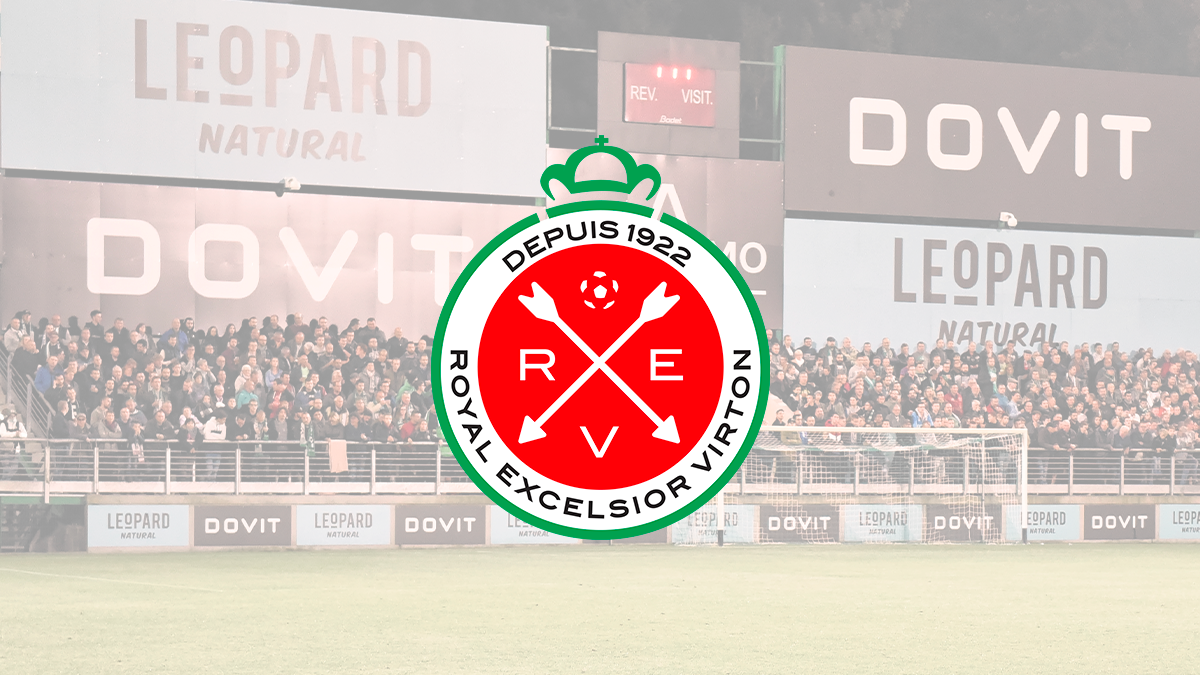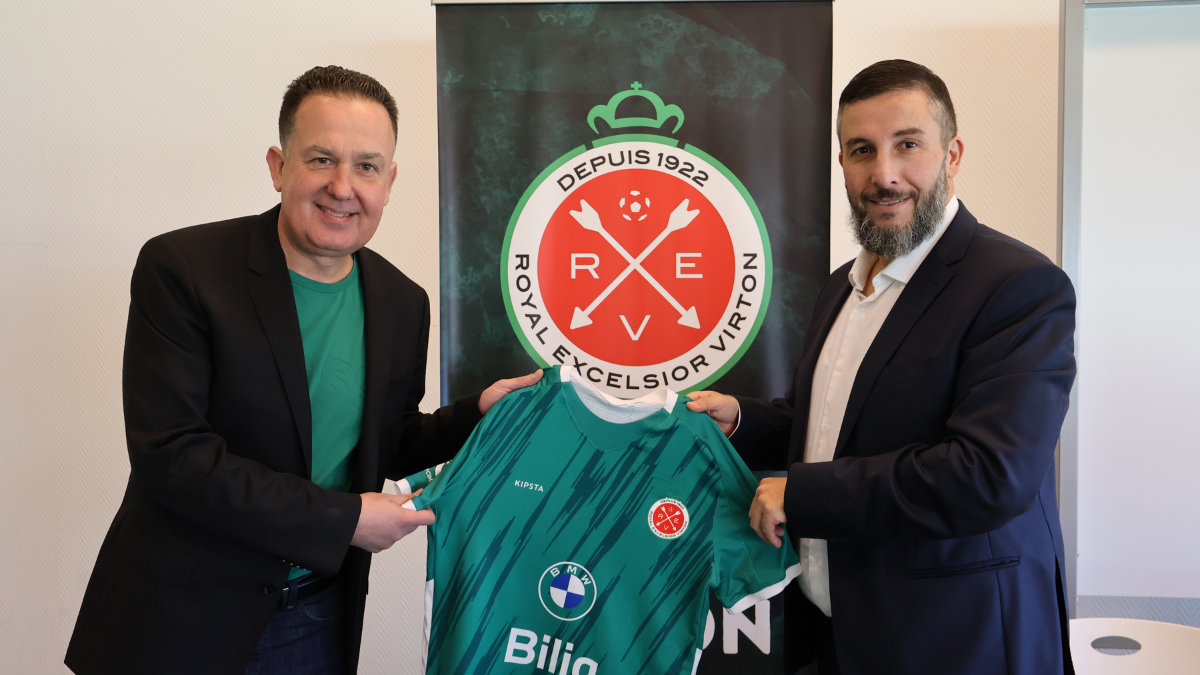Subventions étrangères à certains clubs

English version below
Subventions étrangères à certains clubs de football (les « Clubs-Etat ») au sein de l’UE : le club de football belge RE Virton entame des actions judiciaires pour mettre fin à ces distorsions de concurrence et est – si nécessaire – prêt à saisir la CJUE de questions préjudicielles.
Depuis des années, la problématique des « Clubs-Etat » fait couler beaucoup d’encre.
Javier TEBAS, président de La Liga, s’est fait le champion du combat contre ces « Clubs-Etats » et a annoncé à plusieurs reprises des actions juridiques, dont on ignore si elles se sont concrétisées mais qui – de toute évidence – n’ont à ce jour mené à aucun résultat tangible.
D’après Javier TEBAS et d’autres observateurs avertis, le Qatar (PSG mais aussi le KAS Eupen, en Belgique), les Emirats Arabes Unis – et en particulier Abu Dhabi (Manchester City et 11 autres clubs dans le monde, dont 4 au sein de l’UE) - de même que, depuis peu l’Arabie Saoudite (Newcastle FC) faussent de manière dramatique « l’écosystème européen du football » : ces Clubs-Etat bénéficient d’un « doping financier », notamment par le biais d’accords de sponsoring artificiellement gonflés mais aussi – plus directement – par des injections de capitaux. Les Etats tiers concernés poursuivent des objectifs géopolitiques qui leur sont propres et ne se soucient donc pas de la rentabilité économique des clubs dont ils sont directement ou indirectement propriétaires.
Ainsi dopés financièrement, ces Clubs-Etat génèrent une inflation des sommes des transferts et des salaires des joueurs, pour ensuite – au moyen de la puissance sportive ainsi artificiellement acquise – fausser les compétitions nationales et les compétitions UEFA.
Selon le Royal Excelsior Virton, club professionnel évoluant en deuxième division belge, c’est très exactement ce que produit le dopage financier dont bénéficie le SK Lommel, qui fait partie du City Football Group et qui reçoit donc des fonds de l’Emirat d’Abu Dhabi, en dehors de toute rationalité économique.
A titre d’exemple, alors que le budget du Royal Excelsior Virton tourne aux alentours de 5 millions d’euros, un de ses concurrents – le SK Lommel – vient récemment de bénéficier d’une nouvelle injection de capital à concurrence de 16,8 millions d’euros de sa maison-mère, ce qui lui a notamment permis d’obtenir de la fédération belge de football (URBSFA) sa « licence professionnelle » pour la saison 2023-2024.
Le Royal Excelsior Virton avait averti l’URBSFA qu’une telle décision d’octroi de licence au SK Lommel constituerait une décision violant le droit de la concurrence (notamment l’article 101 TFUE), dès lors qu’elle entérinerait les distorsions/restrictions de concurrence générées par des « subventions étrangères ». Le SK Lommel s’est pourtant vu attribuée sa licence.
Cette décision de l’URBSFA permet injustement au SK Lommel de rester sur le marché du football professionnel belge (au détriment d’un autre club) puisque – sans licence – le SK Lommel aurait été considéré comme terminant dernier du championnat et, à ce titre, aurait été relégué en division amateur.
Ce comportement extrêmement problématique du régulateur belge n’est du reste pas un cas isolé. Il y a en effet un parallélisme frappant avec l’UEFA, qui octroie sans rechigner sa licence européenne à un club comme le PSG, malgré le « Fair Play Financier ». D’après les médias, ce laxisme serait en lien avec les habituels conflits d’intérêts affectant structurellement l’UEFA : comment être un régulateur rigoureux et véritablement neutre, lorsque par ailleurs l’UEFA obtient du Qatar (BeIN Sports) des montants considérables pour l’achat des droits TV de ses compétitions et lorsque le président du PSG, Nasser Al-Khelaïfi, en tant que président de la « European Club Association », apporte à l’UEFA un soutien stratégique essentiel dans sa lutte contre la « European Super League » afin de protéger le monopole commercial de l’UEFA ? C’est d’ailleurs dans le contexte de l’éventuel rachat de Manchester United par le Qatar que le président de l’UEFA a récemment annoncé un assouplissement de l’interdiction pour un même propriétaire d’avoir deux clubs participant à une même compétition de l’UEFA.
Pour revenir au Royal Excelsior Virton, le club belge dénonce la contrariété de cette situation au regard du récent Règlement européen n°2022/2560 « relatif aux subventions étrangères faussant le marché intérieur » (FSR), adopté en décembre 2022. Ce nouveau règlement confère à la Commission européenne d’importants pouvoirs (d’enquête et de sanction) afin d’empêcher que de telles « subventions étrangères » faussent le marché intérieur UE, et donc – a fortiori – y génèrent des distorsions de concurrence. Ce règlement comble une lacune : alors que le droit UE interdit depuis toujours en principe les « aides d’Etat » des Etats membres, il ne contenait pas, jusque-là, un instrument permettant de lutter contre les aides d’Etats tiers.
Dans ce contexte, le Royal Excelsior Virton a :
·Déposé une plainte auprès de la Commission européenne, en l’invitant à faire usage de ses nouvelles compétences pour mettre un terme aux « subventions étrangères » faussant le marché du football professionnel au sein de l’UE et notamment en Belgique (toute entreprise ou personne détenant des informations pertinentes peut bien sûr les communiquer à la Commission européenne afin de l’assister dans sa mission).
·Attaqué devant les juridictions compétentes la décision de l’URBSFA d’octroyer au SK Lommel une « licence professionnelle » pour la saison 2023-2024.
Le Royal Excelsior Virton, défendu par Sébastien Engelen (contrast law) est résolu à faire valoir ses droits et espère voir prévaloir l’intégrité sportive et l’égalité des chances. Il n’hésitera pas, au besoin et le temps venu, à solliciter à ce que des questions préjudicielles soient adressées à la Cour de justice de l’UE pour qu’elle se penche sur ce dossier et confirme qu’une décision d’un régulateur sportif avalisant une distorsion du marché intérieur interdite par le FSR entraine automatiquement une restriction de concurrence incompatible avec l’article 101(1) TFUE et/ou une entrave injustifiée à la libre prestation de services.
__
Foreign subsidies to certain football clubs ("State Clubs") in the EU: the Belgian football club RE Virton is taking legal action to stop these distortions of competition and is - if necessary - ready to refer questions to the CJEU for a preliminary ruling.
For years, the issue of "State Clubs" has been the subject of much discussion.
Javier TEBAS, president of La Liga, has championed the fight against these "State Clubs" and has repeatedly announced legal action. We do not know if such action has ever materialised, but we can - obviously – see that it has not led to any tangible results to date.
According to Javier TEBAS and other informed observers, Qatar (PSG but also KAS Eupen, in Belgium), the United Arab Emirates - in particular Abu Dhabi - (Manchester City and 11 other clubs worldwide, including 4 in the EU) and recently Saudi Arabia (Newcastle FC) are dramatically distorting the 'European football ecosystem': these “State-Clubs” benefit from "financial doping", notably through artificially inflated sponsorship agreements but also - more directly - through capital injections. The third countries concerned pursue their own geopolitical objectives and are therefore not concerned with the economic profitability of the clubs they directly or indirectly own.
Thus, financially doped, these State Clubs generate an inflation of the prices of transfers and players' salaries, to then - by means of the sporting power thus artificially acquired - distort national and UEFA competitions.
According to the Royal Excelsior Virton, a professional club in Belgium's second division, this is exactly what the financial doping of SK Lommel, which is part of the City Football Group and therefore receives funds from the Emirate of Abu Dhabi without economic rationality, is causing.
For example, while Royal Excelsior Virton's budget is around 5 million euros, one of its competitors - SK Lommel - recently received a new capital injection of 16.8 million euros from its parent company, which allowed it to obtain its 'professional licence' from the Belgian Football Federation (URBSFA) for the 2023-2024 season.
The Royal Excelsior Virton had warned the URBSFA that such a decision to grant a licence to SK Lommel would constitute a decision in breach of competition law (in particular Article 101 TFEU), as it would endorse the distortions/restrictions of competition generated by "foreign subsidies". SK Lommel was nevertheless awarded its licence.
This decision of the URBSFA unjustly allows SK Lommel to remain on the Belgian professional football market (to the detriment of another club) since - without a licence - SK Lommel would have been considered as finishing last in the league and, as such, would have been relegated to the amateur division.
This extremely problematic behaviour of the Belgian regulator is not an isolated case. There is indeed a striking parallel with UEFA, which grants its European licence to a club like PSG without a second thought, in spite of 'Financial Fair Play' rules. According to the media, this laxity is linked to the usual conflicts of interest that structurally affect UEFA: how can one be a rigorous and truly neutral regulator on the one hand when, on the other hand, UEFA receives considerable amounts of money from Qatar (BeIN Sports) for the purchase of the TV rights of its competitions and when PSG’s president, Nasser Al-Khelaïfi, as president of the European Club Association, provides UEFA with essential strategic support in its fight against the European Super League in order to protect UEFA's commercial monopoly? Indeed, it was in the context of the possible takeover of Manchester United by Qatar that the UEFA president recently announced a relaxation of the ban on the same owner having two clubs participating in the same UEFA competition.
Coming back to Royal Excelsior Virton, the Belgian club hereby denounces the contradiction of this situation with regard to the recent European Regulation n°2022/2560 "on foreign subsidies distorting the internal market" (FSR), adopted in December 2022. This new regulation gives the European Commission important powers (of investigation and sanction) to prevent such "foreign subsidies" from distorting the EU internal market, and thus - a fortiori - from distorting competition. This regulation closes a loophole: while EU law has always prohibited "State aid" from Member States, it did not previously contain an instrument for combating aid from third countries.
In this context, the Royal Excelsior Virton has:
·Lodged a complaint with the European Commission, inviting it to use its new powers to put an end to the "foreign subsidies" distorting the professional football market in the EU and in particular in Belgium (any company or person holding relevant information can of course communicate it to the European Commission in order to assist it in its mission).
·Challenged the decision of the URBSFA to grant SK Lommel a "professional licence" for the season 2023-2024 before the competent courts.
Royal Excelsior Virton, assisted by Sébastien Engelen (contrast law), is determined to assert its rights and hopes that sporting integrity and equal opportunities will prevail. It will not hesitate, if necessary and in due course, to ask the national court to refer this matter to the Court of Justice of the EU for a preliminary ruling, whereby it shall examine this case and confirm that a distortion of the internal market prohibited by the FSR endorsed by a sport regulator automatically entails a competition restriction incompatible with Article 101(1) TFEU and/or an unjustified restriction to the freedom to provide services.









